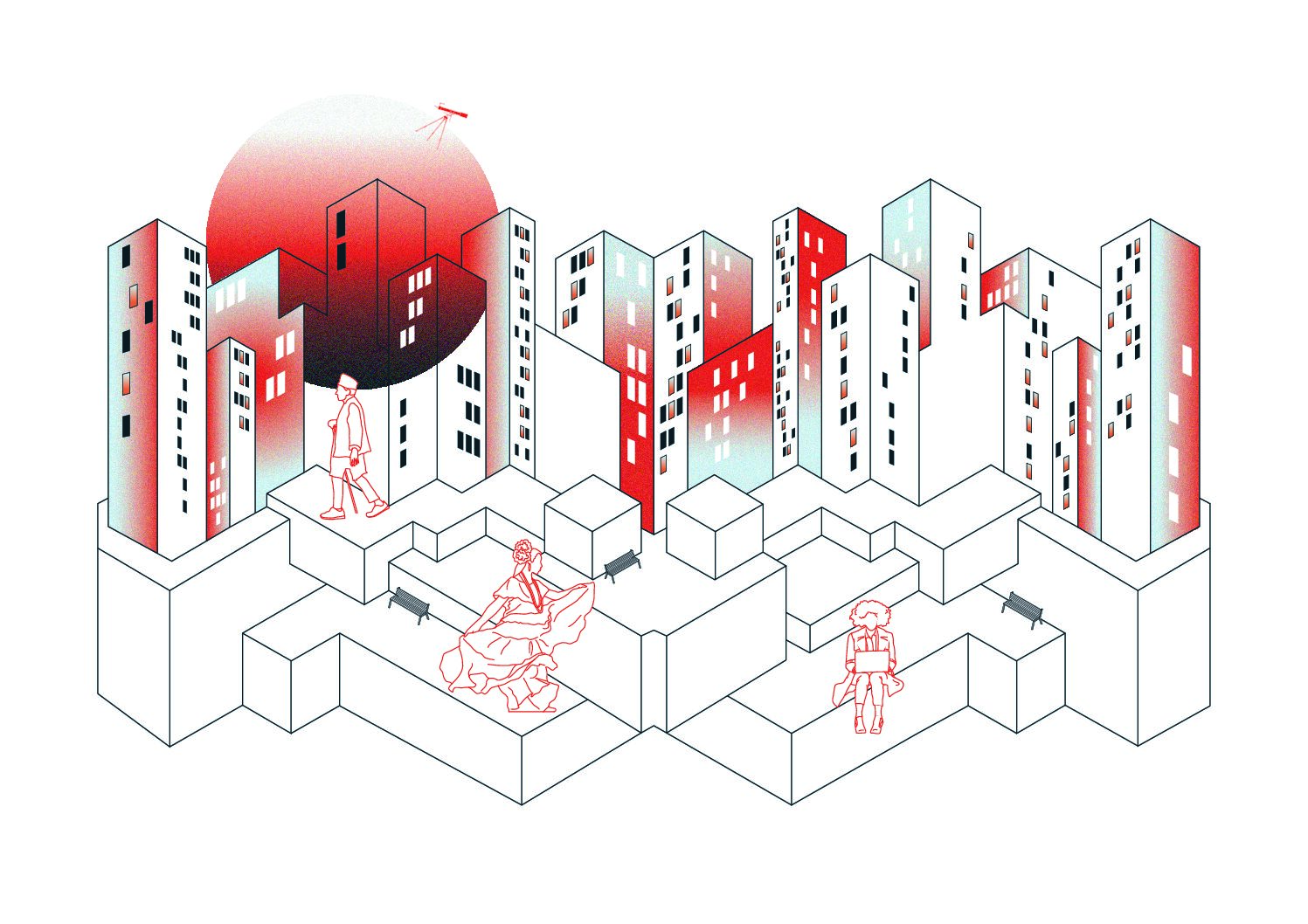Across the world, women are taking to the streets under the banner of Reclaim the Night, protesting the fact that they cannot move safely through public space after dark. Their message is clear: violence, exclusion, and fear are not abstract—they are embedded in how spaces are designed, regulated, and inhabited.
This Autumn’s series of events takes that urgency as a starting point and asks a broader question: how does design—of streets, campuses, digital platforms, or lecture halls—shape who belongs and who does not?
When we meet others—whether a close friend, a potential employer, or a stranger—we meet in a space. It may be physical or virtual, but it always requires a place. And the way these spaces are designed—where they are, for whom they are accessible—determines who is automatically included, and who remains outside.
Awareness begins with noticing who is not automatically included. From there, we can build a willingness to make space for others. SG invites designers, philosophers, activists, and students to explore how we might design for difference: for neurodiversity, for inequality, for unheard voices.
(Re)Claiming Space is an invitation. To think along. To sketch along. To ask a stranger: what kind of space is as inviting to you as it is to me?
But there is also tension in designing inclusively. Can a space embody an ideal? And what happens when we try to force an ideal into a space? When we use spaces to speak out, resist and make ourselves seen? A sidewalk, a lecture hall, a highway – these become political spaces when they are claimed, inhabited, or disrupted. When presence turns into protest.
In this series, we explore how political spaces come into being: why they matter, how they are designed, and how they might be redesigned. Because a political space is never simply given—it must be created, shared, and sometimes fought for. With language and speech, with bodies, and with objects.
What happens when a campus is not just a place to study, but also a space to protest? Where are its limits—and how do we discover them? It’s not only about whether space is granted, but also about what it looks like, and for whom. Who is welcomed, and who remains unseen?
Together, we will trace how such spaces are shaped—both literally and figuratively. Through design, through language, through objects, platforms, and symbols.
Explore SG’s related events this quarter on the theme: (Re)Claiming Space
How does design—of streets, campuses, digital platforms, or lecture halls—shape who belongs and who does not? And what happens when we use these spaces to speak out, resist and make ourselves seen? When presence turns into protest, these spaces become political.
In this series, we explore how political spaces come into being: why they matter, how they are designed, and how they might be redesigned. SG invites designers, philosophers, activists, and students to explore how we might design for difference.
9 September 12:45 | Existential Tuesday: Is everything political for Gen Z? @ TUD Library, The Nook
23 September 17:00 | Is a campus designed for protest? @ TUD Library Hall
1 October 12:45 | Current Affairs Lunch Lecture: Male Violence Against Women @ TUD Library, Orange Room
8 October 16:00 | Driving societal change through inclusive STEM research processes and outcomes @ TUD Library Hall
13 October 19:00 | Critical Mass: Woke Design @ Theater de Veste
15 October 16:00 | ‘Flying Solo’ Opening Reception @ TUD Library Hall
13 November 12:45 | Kiting Huddle: Write for the Wind @ TUD Library, The Nook & the Greenroof
4 December ttba | Non-humans and public space @ TUD Library Hall

